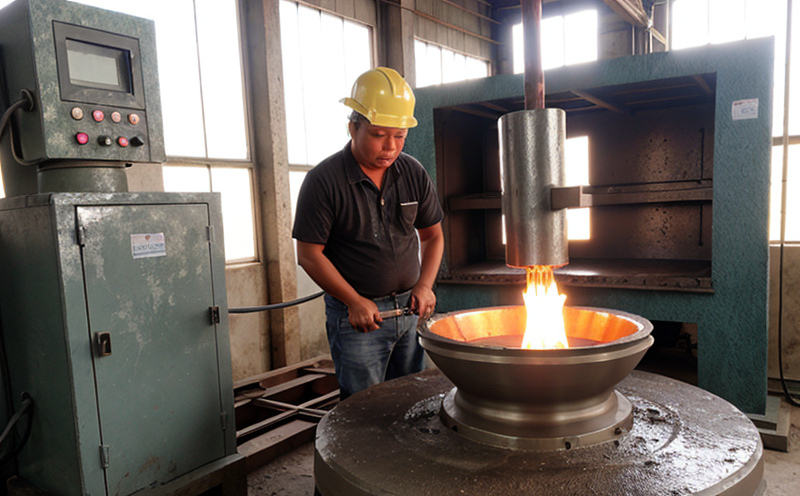ISO 8070 Core Strength Testing in Foundry
The ISO 8070 standard is a crucial guideline for core strength testing, which plays an integral role in ensuring the quality and reliability of castings used in industrial manufacturing processes. This service focuses on the application of ISO 8070 within foundries to assess the mechanical properties of cores used in casting processes.
Cores are critical components that help shape complex internal features of cast parts, such as cavities or passages. Their quality directly impacts the overall integrity and performance of the final product. ISO 8070 provides a standardized method for testing core strength to ensure consistent quality across manufacturing batches. This standard ensures that all cores meet the required mechanical properties before being incorporated into casting processes.
The test involves subjecting a cylindrical specimen, typically made from the same material as the core, to compressive loading until failure. The primary parameter measured is the maximum load at which the core breaks under compression, known as the core's tensile strength or "core strength" in this context. This measurement helps determine whether the cores are robust enough to withstand the stresses encountered during casting and subsequent machining.
Compliance with ISO 8070 is essential for several reasons. First, it ensures that all testing methods used within a foundry adhere to internationally recognized standards, thereby enhancing credibility and trust among clients and stakeholders. Second, consistent adherence to these guidelines can lead to improved product quality by identifying and rectifying issues early in the manufacturing process.
In practice, this service involves several key steps: selecting appropriate specimens based on the core material specified; preparing the samples according to ISO 8070 requirements; applying the test using a universal testing machine capable of precise force measurement; and analyzing the results against established criteria. The resulting data provides valuable insights into the mechanical behavior of cores under stress, allowing for informed decisions regarding process optimization or corrective actions.
For quality managers and compliance officers responsible for overseeing core production at foundries, ISO 8070 testing offers a reliable means of ensuring product consistency and reliability. By leveraging this service, they can demonstrate adherence to international best practices while maintaining high standards of manufacturing excellence.
Scope and Methodology
- Selecting the appropriate type of core for testing based on its intended application in casting processes.
- Preparing cylindrical specimens from the selected cores according to ISO 8070 specifications.
- Using a universal testing machine to apply compressive force uniformly across the specimen until failure.
- Measuring and recording the maximum load applied before failure, which represents the core's tensile strength.
The methodology outlined in ISO 8070 ensures that all tests are conducted under controlled conditions, minimizing variability due to external factors. This consistency is vital for obtaining accurate results that can be compared reliably across different batches or sites.
Use Cases and Application Examples:
- Determining whether cores meet the mechanical property requirements specified by customers or industry standards.
- Identifying potential weaknesses in core design or manufacturing processes that could affect casting quality.
- Evaluating changes made to core materials or production techniques to assess their impact on performance.
Eurolab Advantages
At Eurolab, our expertise in ISO 8070 core strength testing sets us apart from other laboratories. With state-of-the-art facilities and highly trained technicians, we ensure that every test conducted adheres strictly to international standards.
- Precision: Our universal testing machines provide accurate measurements essential for reliable results.
- Consistency: By following ISO 8070 guidelines meticulously, we maintain consistent outcomes across all tests.
- Rigor: We employ rigorous quality control measures to catch any inconsistencies or errors early in the process.





